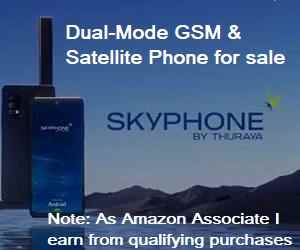Satellite Internet Forum.
Welcome, Guest. Forum rules.To search this site click here > SATSIG search
| Home Login Register |
| Satellite Internet forum › Satellite Internet - Americas › The best satellite internet? |
|
Pages: 1
|
The best satellite internet?(Read 10769 times) |
|
Ex Member
Ex Member
|
Aug 27th, 2007 at 7:32pm
|
| Back to top |
« Last Edit: Aug 27th, 2007 at 8:45pm by Admin1 »
IP Logged
|
|
USN - Retired
YaBB Moderator
★★★★★ Offline Posts: 837 Kentucky (USA) |
Reply #1 - Aug 27th, 2007 at 9:46pm
|
| Back to top |
USN (Ret)
IP Logged
|
|
pgannon
Senior Member
★★★ Offline Posts: 109 |
Reply #2 - Aug 27th, 2007 at 11:11pm
|
| Back to top |
IP Logged
|
|
Ex Member
Ex Member
|
Reply #3 - Aug 28th, 2007 at 2:00pm
|
| Back to top |
IP Logged
|
|
Ex Member
Ex Member
|
Reply #4 - Aug 29th, 2007 at 7:26am
|
| Back to top |
IP Logged
|
|
Ex Member
Ex Member
|
Reply #5 - Aug 29th, 2007 at 8:56pm
|
| Back to top |
« Last Edit: Aug 30th, 2007 at 1:04am by USN - Retired »
IP Logged
|
|
USN - Retired
YaBB Moderator
★★★★★ Offline Posts: 837 Kentucky (USA) |
Reply #6 - Aug 30th, 2007 at 1:03am
|
| Back to top |
USN (Ret)
IP Logged
|
|
Ex Member
Ex Member
|
Reply #7 - Nov 8th, 2007 at 5:48pm
|
| Back to top |
IP Logged
|
|
Ex Member
Ex Member
|
Reply #8 - Nov 8th, 2007 at 6:37pm
|
| Back to top |
« Last Edit: Nov 17th, 2014 at 9:19am by Admin1 »
IP Logged
|
|
Ex Member
Ex Member
|
Reply #9 - Dec 19th, 2007 at 4:01am
|
| Back to top |
IP Logged
|
|
ww
Member
★★ Offline Posts: 4 |
Reply #10 - Dec 24th, 2007 at 2:48am
|
| Back to top |
IP Logged
|
|
Ex Member
Ex Member
|
Reply #11 - Feb 11th, 2008 at 7:48pm
|
| Back to top |
IP Logged
|
|
Pages: 1
|
Email me: eric@satsig.net
Powered by YaBB 2.5.2!
YaBB Forum Software © 2000-. All Rights Reserved.
Disclaimer, Terms of Use and Privacy Forum User Agreement Forum rules Cookie policy.


